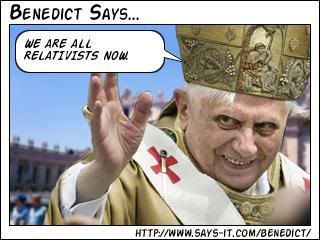The Howard Years
March 2006 will see the release of a Howard hagiography, The Howard Factor, edited by The Australian senior editorial executive Nick Cater, and featuring chapters penned by a "who's who" of Cater's stablemates: Paul Kelly, Steve Lewis, Glenn Milne, George Megalogenis, Christopher Pearson, Matt Price, Dennis Shanahan, Greg Sheridan, Mike Steketee, Alan Wood and cartoonist Bill Leak. The publicity material tells us what we can expect:
John Howard's victory over Paul Keating in 1996 was the start of a quiet revolution that changed Australia forever.
His critics told us he was a white-picket-fence conservative, Little Johnnie, Lazarus with a triple bypass. Instead, Howard has driven a decade of reform, reinventing conservative politics and redefining the national debate.
In this long-overdue assessment of the Howard years, some of The Australian's leading commentators chart the seismic shift in politics, society, workplaces, culture, the economy, trade and foreign affairs. They describe how Howard has redrawn the political map, turning the conservatives into reformers and forcing the progressives to defend the status quo.
That word: reform. A dead giveaway to potential readers of The Howard Factor that nary an ounce of criticism or circumspection with regard to the current Prime Minister's tenure is likely to be found within. One thing's for certain: fawning admiration and arselicking doesn't make for compelling reading--and if the fact, that the only newsworthy tidbit of information the media can divine from its pages is the earth-shattering revelation that Howard is critical of extremist Muslims (well, isn't everyone?), is any indication, Cater hardly has a page-turner on his hands. (And the target audience would probably just as soon be reading Ice Station or something.)
Meanwhile, in the Fairfax press, Tony Stephens gives an analysis of "the Howard years" that is pretty spot-on. He cites a poll indicating that a majority of Australians believe that the country has become a meaner place under Howard (was it ever likely to be any different?), but this has not translated into a voter backlash against the Government because:
Australians feel that the economy matters most. Society has almost become the economy. Eighty-three per cent of those who identified the economy as the most important issue believe Howard's Government has handled it very well or quite well. Most Australians are financially better off than they have ever been. There have been 14 years of strong growth, including five under Labor.Far more importantly, I would argue, most Australians perceive that they are financially better off (whether or not it is actually the case)--and they take as the signs of their improved circumstances the home theatre systems that grace their living rooms. Or the "SUVs" (they used to call them 4WDs) that grace their carports. The frenzied accumulation of luxury goods has become a national pastime under Howard; indeed it is one of the secrets of his success. Take the celebrated "battler" (Labor's traditional base), add a credit card or two and a mortgage, and voila! Instant "aspirational Australian," completely divorced from the reality of his or her financial circumstances (whether those circumstances are good or bad), for whom debt is a virtue, not a curse, and who spends money like it grows on trees. (The retail and building sectors depend upon this false economy absolutely.) Fertile territory for a Coalition government that has worked long and hard to have selfishness replace egalitarianism as the defining national characteristic.
Stephens' piece opens with an observation that should strike a chord with anyone who is sick to death of the American-style jingoistic nationalism that has become fashionable round these here parts over the past decade (but especially since September 11):
YOU can sometimes see a whole nation changing on a sporting field. Cricket supporters saw Australia changing last month at the SCG. Before the traditional New Year's Test, this time against South Africa, players filed on to the "hallowed turf", past the national flag and sang the national anthem. At least one player placed a hand over his heart, in the American way.
Sheesh! These days, you don't even have to go to a cricket match. Take a five-minute walk around the streets of your neighbourhood, and count the flags and flagpoles you see on the front lawns of people's houses. I call this activity "Spot the Liberal Voter."

















|